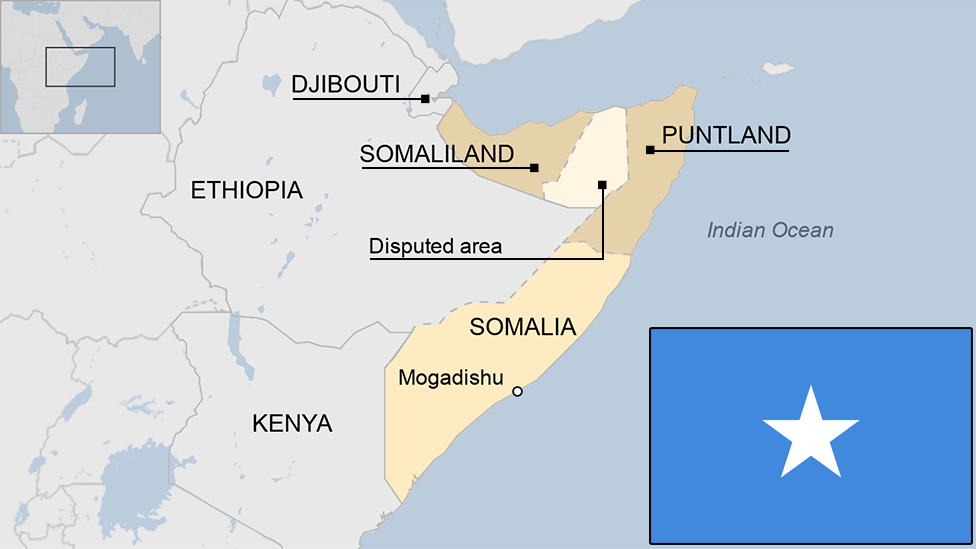Tackling female genital mutilation 'taboo' in Birmingham
- Published
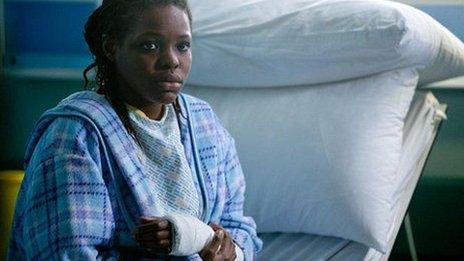
The BBC drama featured a character called Tamasha who had undergone the procedure
Casualty's decision to feature female genital mutilation (FGM) on primetime television forced a previously "taboo" subject into mainstream debate. BBC News speaks to the professionals fighting to get the practice stopped.
As a midwife on the labour ward of the inner-city Heartlands Hospital in Birmingham, Alison Byrne has seen a lot. But she was unprepared for treating mothers-to-be who had undergone FGM.
In 2002, following an influx of Somali immigrants to the city, the hospital began seeing pregnant woman who had lost most of their external genitalia to extreme cutting.
The women had undergone the procedure - defined by the World Health Organisation (WHO) as "type three" FGM - mainly as young girls in Somalia, where the cultural tradition dates back thousands of years.
But although she is an experienced health professional, Ms Byrne told BBC News she was still shocked when she first encountered FGM.
"I still am, that hasn't gone, absolutely shocked," she said. "Mortified really, when you hear the stories, devastated for the women. It's just dreadful."
The procedure can lead to a range of health problems and make sexual intercourse and childbirth agonising for women.
"With type three, the baby will not deliver vaginally because the opening is so small due to scar tissue and the damage that's been done," she added.
Ms Byrne said "no one knew what to do" when women with FGM first starting using maternity services at the hospital in Bordesley Green.
But as the number of women - and different communities they came from - increased, Ms Byrne and another midwife pushed for a new specialist service to help them.
20,000 'at risk'
In 2003, the new African Well Women's Service saw 109 women with FGM. By 2012, this number had more than tripled to about 330.
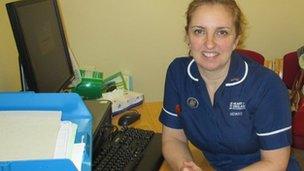
Alison Byrne believes attitudes are gradually changing
Ms Byrne says the increase is a direct result of the type of communities settling in that part of Birmingham. The clinic now mainly sees women from Somalia, Sudan, the Gambia and Eritrea.
The specialist midwife is among a number of experts who welcomed the long-running BBC medical drama's portrayal of FGM. The programme featured a pregnant woman and her teenage daughter both suffering pain and complications as a result of it.
"You just need to get the word out there," said Ms Byrne who believes "education and awareness" is the way forward, particularly among affected communities as well as of medical students, midwives and in schools.
All of the women seen at the clinic underwent FGM before their arrival in the UK, but Ms Byrne does fear for the girls born into cultures where it is practised.
Although FGM, or taking someone abroad for the procedure, is illegal in the UK, research by Forward (Foundation for Women's Health Research and Development) found more than 20,000 girls in England and Wales were at risk.
After Casualty's Unsilenced episode aired, West Midlands Police revealed it had looked into 24 reports of FGM last year.
The force, which has already looked into 10 allegations of FGM this year, had no reports of FGM in 2002 and 2003.
It said officers "thoroughly investigate all allegations of FGM" and raise awareness of the practice through communities and professionals in order to protect potential victims.
No-one in the UK has ever been prosecuted under laws introduced in the mid-1980s.
Ms Byrne said FGM was a "very deeply-rooted cultural tradition" carried out as a result of beliefs, such as to stop infidelity and promiscuity or increase a woman's "marriageability". The World Health Organisation defines it in a similar way, external.
The age it is carried out and what is done varies between communities, Ms Byrne said. Some women at the clinic were cut at just seven days old.
She said the procedure, often done without anaesthetic in non-sterile conditions, leads to one in 10 girls dying from blood loss, septicaemia or other complications.
'Many myths'
Through the clinic, women who have been sewn up can undergo a surgical reversal called deinfibulation, allowing a normal birth and urination.
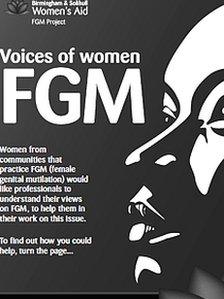
Projects in Birmingham are helping to raise awareness among communities
They can also receive counselling as many are left traumatised by the procedure carried out without their consent as children.
"Even before anything has been done it is the fact the child has been led away," Ms Byrne said. "You can imagine the psychological implications. Sometimes they might be blindfolded."
Naana Otoo-Oyortey, Forward's executive director, said a shortage of evidence and data made it "very difficult to answer" where the procedure was happening in the UK and whether or not it was increasing.
While the number of communities where FGM was practised had increased in the UK, it was impossible to say how many people would still feel under pressure to continue it, she said.
The lack of evidence also made it extremely difficult to prosecute, she told BBC News.
"There's a lot silence from the communities. But it is abuse and should be stopped," she said.
- Published12 April 2013
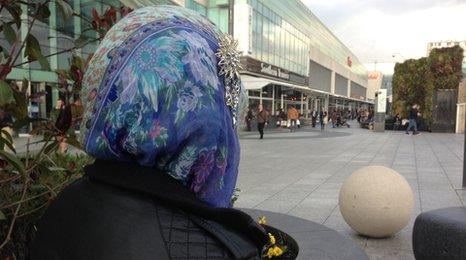
- Published13 March 2013
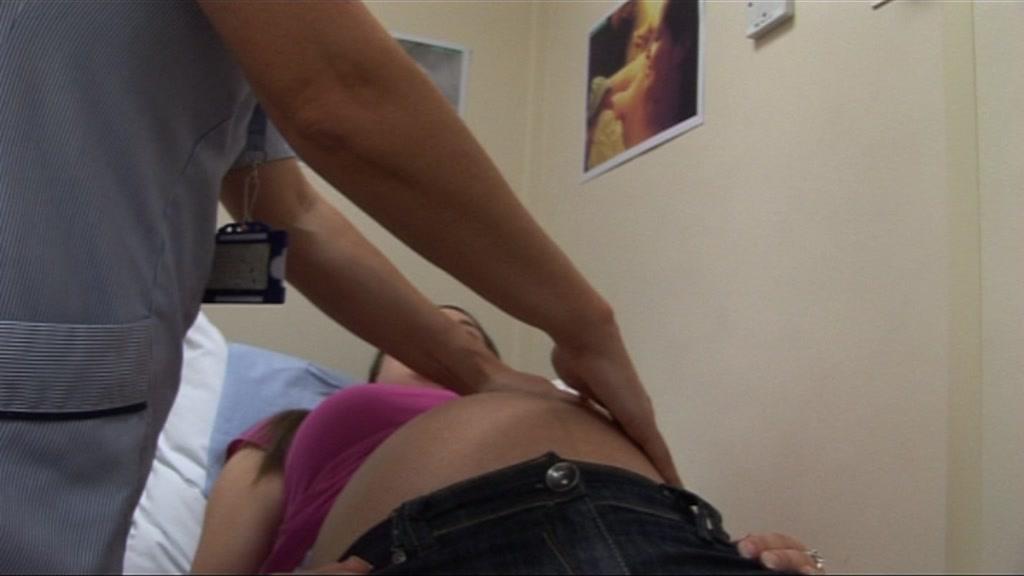
- Published2 February 2013

- Published7 February 2013
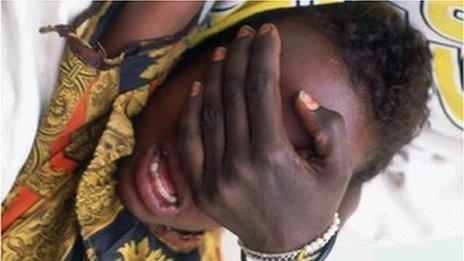
- Published23 July 2012

- Published14 July 2012
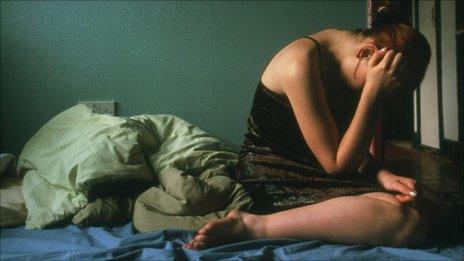
- Published22 August 2010
- Published2 January 2024
